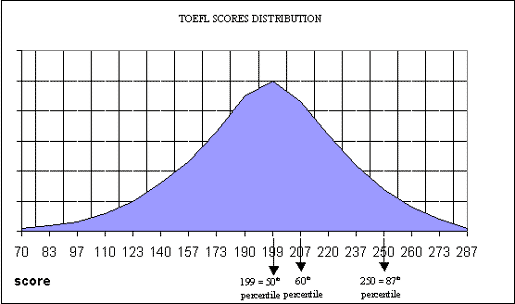Test Of English as a Foreign Language
So, you are the ambitious type – on your way to high places… good going! The TOEFL exam is probably another step along your MBA application.
- What’s the deal?
It is best if, before you begin to study for the TOEFL, you have an idea of the score you are aiming for. To do this, go on the web and check out the requirements of the various business schools you are considering. Once you are focused on your goal, you can figure out what it will take for you to achieve it! - What does the TOEFL cover and what is its level?
The TOEFL, designed to test how well a foreign student (you, hopefully…) will manage within an English-speaking environment, covers four areas. These include listening comprehension, grammar, reading comprehension, and essay writing. Basically, if you have graduated from high school with a high score on a 5-point English bagrut (and you still remember your English…), there is a chance you may succeed on the test without any professional guidance. However, to be on the safe side, perhaps take a sample test to see how you score. Then figure out whether you need a course. - What’s the score range and what does it represent?
Scores range from 40 to 300, but most universities require a minimum grade of between 207 (which is above 60% of all test-takers) and 250 (above 87% of all test takers). If you are aiming for leading business schools, you are most likely looking at a score of at least 250.The following score distribution chart displays the probability of getting a certain score. The area under the curve, to the right, represents the probability of getting that score or higher.

Apart from this score, you will be graded on your performance in the essay writing section anywhere from 1 to 6. A grade of 4 is good and represents solid writing skills (spelling, paragraphing, punctuation, organization), while higher scores, which are often required by only leading business schools, represent better writing skills. Make sure you know what the schools you are applying to require and how likely it is that you will reach these grades, while considering your options.
The listening comprehension and the reading comprehension are each allotted a maximum of 30 points, while the grammar, together with the essay writing, are allotted another 30 points at most. A mathematical manipulation is then performed on these numbers, and the above range of scores is the result. The listening comprehension and the grammar are adaptive; meaning, if you answer a question well, your next question will be more difficult (and worth more points). The reading comprehension however, is not adaptive: questions are pre-written and their difficulty does not depend on your level. Regarding the essay writing – ETS readers spend only 2 minutes per essay, so hype it up and make it energetic! - Which books can I buy to study from on my own?
The questions on the TOEFL represent a broad range of theory and techniques. Books available provide either practice or theory, but we have not seen a single book that combines both to the appropriate extent. - How useful are the CAT exams available on computer?
Unfortunately, these CD-ROMs furnish great practice, but cannot be trusted for grades. Scores are almost always way higher on these tests than they actually are (anyone who used these tests as reference and then took the test will testify to this…).
A last piece of advice:
If you need both the TOEFL and the GMAT, study for the TOEFL first, and then begin the work for the GMAT. An excellent score on the TOEFL is the basis for a good beginning on the GMAT.
The information contained in this article has been contributed by the courtesy of
GMAX Ivy-League Test-Preparation Center in Israel
For a free consultation, call GMAX at: 1-700-702-102
